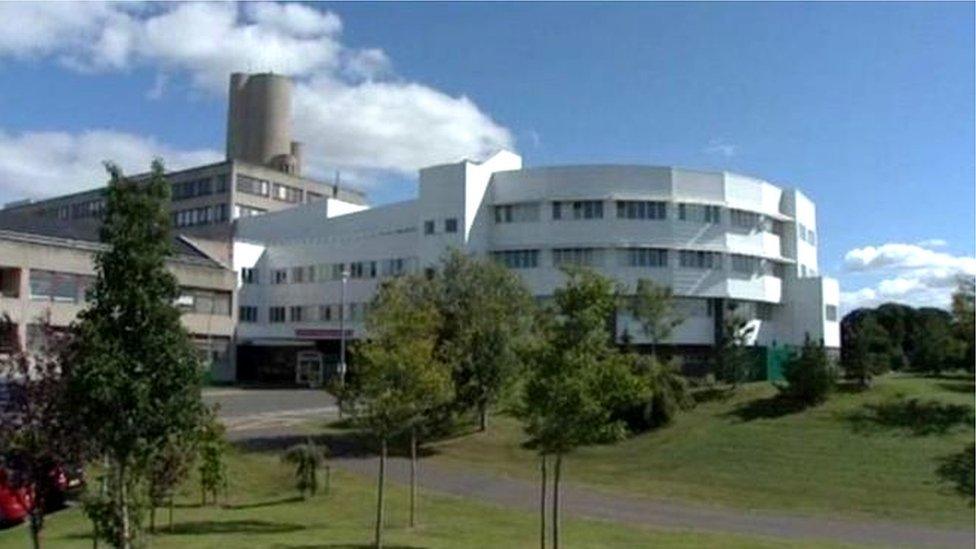'Exceptionally high-risk' Tayside cancer surgery referral was 'unreasonable'
- Published

The surgery was carried out at Dundee's Ninewells Hospital in 2017
NHS Tayside has been told to apologise to the family of a woman who died after being referred for "exceptionally high-risk" kidney surgery.
The Scottish Public Services Ombudsman (SPSO) said the woman's referral had been "unreasonable"., external
The woman, known as Mrs A, was diagnosed with a type of kidney cancer, which the SPSO said posed a low-risk.
She developed an infection following the surgery at Ninewells Hospital in 2017 and died at home a month later.
NHS Tayside said it was "sincerely sorry" that its treatment and care "fell below the standard we would expect."
The SPSO's report, external also found failings in Mrs A's nursing care and that she had been discharged home without appropriate pain relief.
The health board has been told to make eight improvements, including giving "full consideration" in similar circumstances to non-surgical treatment options for patients with renal cell carcinoma.
Mrs A's daughter, referred to as Mrs C, complained to the SPSO about the care and treatment her mother had received from the health board.
'Number of failings'
The SPSO said it took independent advice from a consultant urologist, a clinician who treats disorders of the urinary system.
The SPSO said: "We found that the decision to refer Mrs A for kidney surgery was unreasonable.
"We found there was a low risk the renal cell carcinoma would harm Mrs A, and she was at exceptionally high-risk from kidney surgery."
Mrs C also complained that the board failed to give her mother "reasonable care and treatment" in response to her worsening condition after the surgery.
The SPSO said: "We found there was an unreasonable delay in recognising Mrs A had a haemothorax (a collection of blood in the lung cavity) but it was then treated appropriately."
The ombudsman also found "a number of failings" in relation to the prevention of pressure ulcers, diabetes management and nutritional care.
It also said that Mrs A was not not prescribed adequate pain relief medication following her discharge home for end-of-life care.
An NHS Tayside spokeswoman said: "We are sincerely sorry that treatment and care in this case fell below the standard we would expect.
"We accept all the recommendations made in the report and an action plan is being developed to meet the recommendations within the agreed timescales.
"We will be contacting the family again to apologise and offer the opportunity for a meeting with the clinical lead for urology."